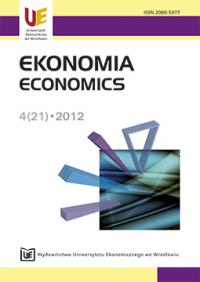Adam Smith a polska doktryna wolnego handlu u schyłku XVIII wieku. Wokół polemik w kwestii umiejscowienia myśli ekonomiczno-politycznej Hugona Kołłąta
Adam Smith and the Polish doctrine of free trade in the end of 18th century. Around the polemics in the question of Hugo Kołłątaj and Michał Ossowski’
Author(s): Rafał LisSubject(s): Economy
Published by: Wydawnictwo Uniwersytetu Ekonomicznego we Wrocławiu
Keywords: free trade; Smith; liberalism; leseferism; physiocratism; Four Year Sejm; sale of starostwa
Summary/Abstract: The article focuses on the relationship between Adam Smith’s doctrine of free trade and that of Polish reformers of the Four Year Sejm, represented by Hugo Kołłątaj and Michał Ossowski. Although in the light of earlier polemics it would be very problematic to prove a direct influence of the Wealth of Nations on pre-partitioned Polish political and economic thought, there is still an interesting question of far-reaching convergence of two intellectual moments to analyze. As far as this is concerned, it should be found to what extent Polish supporters of free trade go beyond a doctrine of physiocratic leseferism, very influential in Poland, approaching more “sociological” Smithian conclusions. Such an opportunity is especially provided by the analysis of “naturalism” – protectionism paradox. It turns out that although there is even a striking parallel in justification of some examples of dissenting with the free trade logic (specifically for reasons of national safety), Polish reformers anticipated a greater role of the state (mainly in supporting of industrial initiatives).
Journal: Ekonomia
- Issue Year: 2012
- Issue No: 21
- Page Range: 11-29
- Page Count: 19
- Language: Polish

